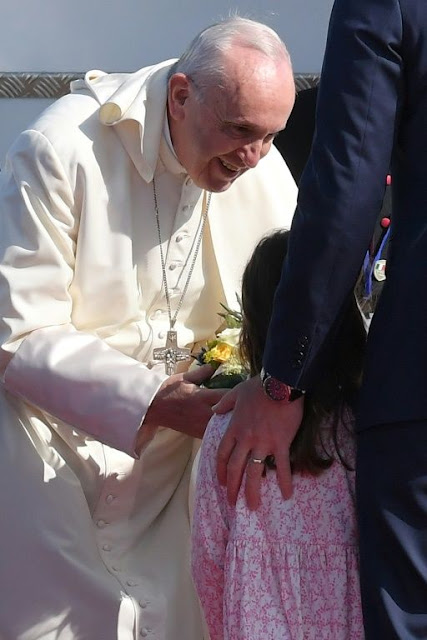 |
| Eleven-year-old Nicky Verstappen who vanished two decades ago on August 9 at a summer camp in southern Limburg province, near the German border (AFP Photo) |
The Hague (AFP) - A survival expert arrested near Barcelona over the brutal 1998 rape and killing of a young Dutch boy after one of the most extensive murder investigations to date in the Netherlands agreed Monday to be extradited from Spain.
Spanish
police arrested Joseph Brech, 55, on Sunday afternoon in a mountainous area
near the town of Castelltercol some 50 kilometres (30 miles) from Barcelona
while he was going out to cut wood.
The
authorities believe Brech -- an experienced mountain climber who had scaled
Mount Everest -- killed eleven-year-old Nicky Verstappen who vanished two
decades ago on August 9 at a summer camp in southern Limburg province, near the
German border. Brech had worked at the camp at the time, according to Spanish
police.
Verstappen's
body was found a day after his disappearance close to the camp site, with
authorities later confirming he had been sexually abused before his death.
Police at
the time mounted a massive search closely followed by Dutch media and the
public, but the killer remained on the loose -- until advanced DNA testing
earlier this year led officers to Brech.
Spanish
police on Monday escorted the suspect to a tribunal in the city of Granollers
where he told a judge from Madrid's High Court by video conference that he had
been in Spain since March and agreed to be extradited to the Netherlands, the
court said in a ruling.
Brech will be held without bail until he is extradited, the court added. He is accused of murder, sexual aggression and kidnapping, it added.
 |
| Spanish police arrested Joseph Brech, 55, on Sunday afternoon in a mountainous area near the town of Castelltercol some 50 kilometres (30 miles) from Barcelona (AFP Photo/Spanish Police) |
Brech will be held without bail until he is extradited, the court added. He is accused of murder, sexual aggression and kidnapping, it added.
'Love to
have answers'
His arrest
follows a public appeal on Wednesday, during which Dutch detectives shared
photographs of the suspect.
A Dutchman
living in Spain recognised the man in the photos and sent a tip-off to Dutch
newspaper the Telegraaf, which contacted police.
Brech was
living "in a tent in the woods" near an abandoned and isolated house
where several homeless people live, the unidentified man told the newspaper.
"He
told me he liked living in nature and that was why he was there," the man
said.
Brech had
extensive survival gear at the time of his arrest, including fishing roads, a
book on edible wild plants, batteries and dehydrated foods.
In a
picture shared by Spanish police, he appears face down on a dirt road with his
hands handcuffed behind his back as police stand over him.
The boy's mother, Berthie Verstappen, said the family did not expect the arrest would come so soon after last week's police appeal.
 |
Eleven-year-old
boy Nicky Verstappen was raped and killed at a Dutch summer
camp two decades
ago (AFP Photo/Marcel van Hoorn)
|
The boy's mother, Berthie Verstappen, said the family did not expect the arrest would come so soon after last week's police appeal.
"We
feared he would hide so well that he would not be found for months. We would
love to have answers to the questions we have, even if we dread hearing what
happened," she told Dutch public television on Sunday night.
DNA
evidence
The case
regularly returned to the public eye in the Netherlands over the past two
decades.
Police said
new digital techniques helped them to develop a DNA profile in 2008, from
traces found on Verstappen's clothing, but there had been no match.
As time ran
out to catch the suspect, police in February appealed to 21,500 men to donate
DNA samples in a bid to close in on the perpetrator.
Some 16,000
men living in the area where Verstappen was murdered volunteered to hand over
DNA samples.
But Brech,
a former scout worker who was 35 at the time of the murder, was not among the
volunteers, and as he was previously interviewed as a witness, police became
suspicious.
When his
family reported him as missing in April, Dutch and French police searched his
cabin in France's mountainous eastern Vosges region, where he owns a chalet.
They found
traces of DNA on his personal belongings which matched samples taken from the
slain boy's clothes.
A
European-wide warrant for Brech's arrest was issued on June 12.

















